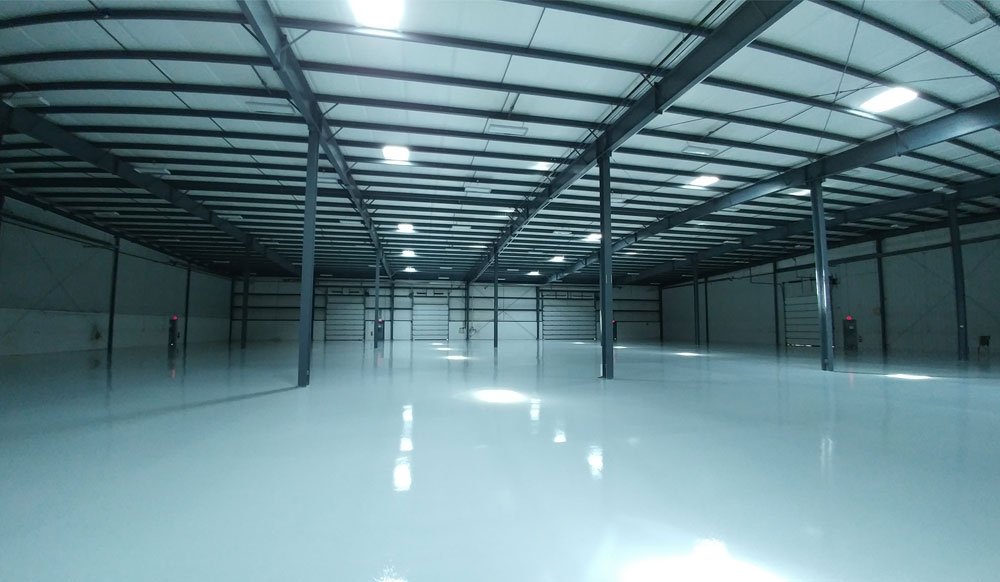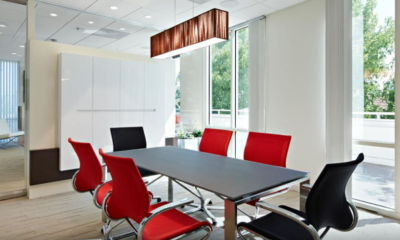News
Transforming Your Space: The Ultimate Guide to Warehouse Flooring
When it comes to optimizing a warehouse, flooring is more than just a practical consideration—it’s a fundamental element that can enhance productivity, safety, and even aesthetics. Selecting the right warehouse flooring involves a careful balance of durability, functionality, and cost-effectiveness. In this comprehensive guide, we’ll explore the different types of warehouse flooring, their benefits, and how to choose the best option for your needs.
The Foundation of Efficiency
Warehouse flooring must endure heavy loads, constant foot traffic, and the occasional spill or accident. Therefore, the choice of flooring can significantly impact daily operations and long-term maintenance costs. Let’s dive into some popular warehouse flooring options and their unique advantages.
1. Concrete Flooring
Concrete flooring is a staple in many warehouses due to its durability and cost-effectiveness. It’s a solid choice for spaces that experience heavy machinery traffic and large volumes of goods. Concrete can withstand significant wear and tear, and with proper sealing, it resists stains, spills, and moisture. Additionally, polished concrete flooring offers a sleek, modern appearance that can brighten up a space and improve visibility. For those seeking an upgrade, adding an epoxy coating can enhance the floor’s resistance to chemicals and abrasions.
Pros:
- Highly durable and long-lasting
- Low maintenance
- Can be enhanced with coatings for additional protection
Cons:
- Can be hard and cold underfoot
- Initial installation can be expensive
2. Epoxy Flooring
Epoxy flooring is a type of resin-based flooring that creates a seamless, durable surface. It is applied over a concrete base, forming a hard, glossy finish that is both aesthetically pleasing and functional. Epoxy is particularly effective in areas where chemical spills are a concern, as it resists staining and is easy to clean. It also offers excellent resistance to heavy loads and abrasion.
Pros:
- Provides a seamless surface that’s easy to clean
- Highly resistant to chemicals and spills
- Enhances light reflection, improving warehouse lighting
Cons:
- Requires proper surface preparation before application
- Can be slippery when wet
3. Vinyl Flooring
Vinyl flooring is another popular choice for warehouses, especially in areas where comfort and noise reduction are priorities. Vinyl tiles or rolls offer a softer surface compared to concrete or epoxy, which can be easier on workers’ feet and joints. Modern vinyl flooring options are designed to handle heavy loads and resist damage from spills and stains.
Pros:
- Provides cushioning, reducing fatigue
- Available in a variety of styles and colors
- Resistant to water and stains
Cons:
- Can be susceptible to scratches and dents
- May require more frequent maintenance compared to harder surfaces
4. Rubber Flooring
Rubber flooring is known for its exceptional durability and shock absorption. It is ideal for warehouses where heavy equipment is used, as it can reduce noise and vibration. Rubber flooring also provides a non-slip surface, enhancing safety in busy environments. It is easy to install and maintain, making it a practical choice for many warehouse settings.
Pros:
- Excellent impact and noise absorption
- Non-slip surface enhances safety
- Easy to install and maintain
Cons:
- Can be more expensive than other options
- Limited design choices compared to other flooring types
5. Interlocking Floor Tiles
Interlocking floor tiles are modular pieces that fit together like puzzle pieces, creating a customizable flooring solution. They are often made from materials like rubber or PVC and offer a quick and easy installation process. Interlocking tiles can be replaced individually if damaged, making them a cost-effective choice for high-traffic areas.
Pros:
- Easy to install and replace
- Customizable and can be rearranged as needed
- Provides cushioning and reduces noise
Cons:
- May not be suitable for extremely heavy loads
- Seams between tiles can trap dirt and debris
Choosing the Right Flooring for Your Warehouse
Selecting the best warehouse flooring depends on several factors, including the type of operations, budget, and maintenance requirements. Here are some tips to help you make an informed decision:
1. Consider Your Needs:
- Traffic and Load: Assess the volume of foot and vehicle traffic, as well as the weight of the loads the flooring will need to support.
- Chemical Exposure: Determine if the floor will be exposed to chemicals or harsh conditions that could affect its durability.
2. Budget Wisely:
- Initial vs. Long-Term Costs: While some flooring options may have a higher initial cost, they might save money in the long run due to reduced maintenance or longer lifespan.
3. Maintenance and Durability:
- Ease of Cleaning: Choose a flooring type that aligns with the level of maintenance you can provide and the ease of cleaning required.
4. Safety and Comfort:
- Slip Resistance: Ensure the flooring provides a safe, non-slip surface, especially in areas prone to spills or moisture.
- Worker Comfort: Consider flooring options that reduce fatigue for workers who spend long hours on their feet.
Conclusion
Choosing the right warehouse flooring is a critical decision that impacts safety, efficiency, and maintenance. From the robust durability of concrete and epoxy to the comfort and noise reduction of rubber and vinyl, each flooring option offers unique benefits tailored to different needs. By evaluating your specific requirements and considering factors such as traffic, load, and maintenance, you can select a flooring solution that enhances your warehouse operations and supports a productive work environment.













